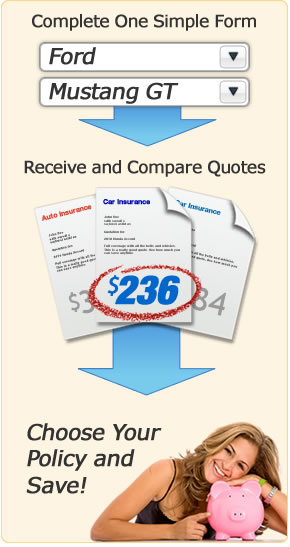
Insure your Chevrolet G10/1500 for Much Less than you Think
If finding cheaper car insurance was fun, we'd make the time to do it regularly. Unfortunately, it's not always as easy as it sounds to get the best rate. Finding affordable coverage for your Chevrolet G10/1500 probably is no different.
Step One: Compare Apples-to-Apples Quotes
Up until about ten years ago, the only way to shop for car insurance was in the office of a local insurance agent where you'd get a hard sell into a policy. Life has gotten easier!
Comparing insurance rates for a Chevrolet G10/1500 only require you to enter your information once. You'll receive multiple quotes and can easily compare rates.
To find affordable coverage for your Chevrolet G10/1500, the first step is to click the link below and complete the short form.
Quote Tip! When doing car insurance quotes for your G10/1500, make sure you use the exact same values for coverages and deductibles. If you use different limits, you will not be able to fairly compare rates between different companies.
Step Two: Tricks to Saving Money on G10/1500 Insurance
There are many factors that actually determine what you will pay for insurance, and some are completely within your control.

- Particular years and models of cars tend to be frequently stolen, and if your G10/1500 is on that list, chances are your insurance company knows it and will ding you a little extra because of it.
- If you belong to a professional organization for your employment, you may qualify for a discount rate. And if you're a senior citizen, you may get a discount for your age as well.
- If your vehicle comes with safety features such as electronic stability control, head restraints, all-wheel drive or air bags, these all help keep insurance costs down by helping reduce accident injuries.
- If you've recently completed a driver's training or safety course, tell your insurance company. You may qualify for a 5-10% discount.
- A claim-free discount can help keep your rates down, so don't file claims that are only marginally more than your deductible. You're better off keeping the discount.
- Never allow one policy to expire without having a new policy effective the same date. This causes a lapse in coverage and if you don't have insurance for any length of time, your next policy will cost you more.
- If your insurance company allows driver-specific car rating, you can save money by rating any teenage drivers on low profile vehicles with either no physical damage coverage or very high deductibles.
- If you rent rather than own a home, you may be paying more for car insurance. Homeowners often get lower rates.
- If you think the only financial impact of a speeding ticket is a fine and court costs, think again. Insurance companies will raise your rates for up to three years for a single ticket.
- If you're not sure what your credit rating is, check it now. Car insurance companies use your credit score to determine the rates you pay, so the better your credit, the less you will pay.
- Consider raising your comprehensive and collision deductibles if you carry full coverage. By accepting more risk yourself, your car insurance company will cut you a break on your physical damage premiums.
Step Three: Buy the Policy That's Right for You
It's time to make a purchase decision based on your rate comparisions and and any policy coverage changes you wish to make. Once you are comfortable with the cost and coverages, you can finalize your purchase by paying your premium down payment.
If you're cancelling an old policy, make sure the new coverage starts the same day your old policy ends. This avoids any penalty for having a lapse in coverage which can cost you more.
When buying a new vehicle, coverage will extend from your existing policy. But if you don't have a car insurance policy, you will want to make sure you have coverage BEFORE you drive off the lot. When driving off the lot, you may have coverage that extends from your current policy. But it will only be equal to the most coverage you have on any vehicle. So if you only carry liability coverage, you won't be covered for full coverage until you specify it on your policy.
All states require you to keep the proof-of-insurance or financial responsibility card in your vehicle at all times. Failure to produce this document can result in a citation. High risk drivers may be required to submit an SR-22 with their state DMV's. If you have been convicted of reckless driving, DUI or had an uninsured accident, you may qualify. Make sure your new policy reflects the need for the SR-22 filing.
More Resources for Insurance Buying
To find out more information such as auto insurance myths, rental car insurance and how to file a claim, visit the Insurance Information Institute website.

